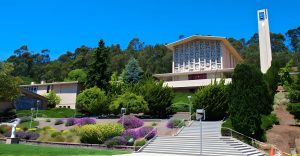Supes Introduce Resolution to Keep Port Shelter Site Open for Unhoused Residents

By Mayor Sheng Thao
When I took office in January, I knew that my Administration would be facing a large deficit.
In fact, with a $360 million shortfall over the next two years, it is the largest deficit in Oakland’s history. This inherited shortfall is largely the result of two factors: the loss of federal pandemic funding and a decline in revenue generated from the real estate transfer tax and transient occupancy tax.
But when you’re in need of City services, something I know about all too well, it doesn’t matter why there’s a shortfall, it matters if you’ll have a job, whether you have an affordable place to live, whether you live in a city that has opportunities and resources for your children and your family.
With this in mind, our challenge was unprecedented, but our mandate was clear: Balance the budget, invest in our communities, preserve jobs.
Thanks to the ingenuity and hard work of our City staff, our “One Oakland” proposed budget accomplishes all of the above—while also making significant investments in our communities, including the largest in affordable housing in the city’s history.
Yes, we were forced to make difficult decisions, but it was also an opportunity to create efficiencies and improve coordination in City government, reducing costs and strengthening our ability to serve our communities.
As a result, our proposed budget includes a new reorganization of City departments— Department of Homelessness & Housing Development; Department of Children, Youth and Families; and Department of Planning, Building and Economic Development.
The reorganization will ensure each department has a clear mission related to community priorities and save $2 million per year, allowing us to preserve vital services in these challenging times.
This reorganization will be supported by an improved management structure in the City Administrator’s Office. Departments with related services will be grouped into “channels” and report to or coordinate with a dedicated Deputy or Assistant City Administrator.
To further close the gap, we are freezing vacant positions—300 in total—many of which have been open for a long period of time; allowing for attrition, meaning if a position becomes vacant, we will hold off hiring a replacement until funding becomes available; and delaying on spending.
In all cases, we did this with the goal of minimizing impacts on services. And we will prioritize hiring for these positions if revenue exceeds forecasts.
This budget is a reflection of my Administration’s values: Centering Equity; Valuing the City Workforce; and Strategic Thinking.
This is why, despite the environment we face, the proposed budget allocates more than $200 million over the next two years toward affordable housing; expands early childhood education through Oakland’s Head Start and Early Head Start program; includes more than $106 million to build, repair and upgrade parks, recreation facilities, libraries, storm drains and non-road infrastructure; and invests more than $9.1 million toward street safety.
The proposed budget will also allow for better coordination of key public safety goals while continuing the ‘civilianization’ of certain functions of the Police Department.
This is a budget that manages our fiscal situation responsibly, responds to the needs of our residents and local businesses, and reflects my Administration’s commitment to direct investments in our communities—all while avoiding layoffs.
I applaud our City staff for this huge accomplishment, balancing not just the budget but the needs of our residents.
I look forward to hearing community input through a series of public forums—and to adopting this budget on June 30 so we can move forward together, as One Oakland.
Sheng Thao is the 51st and current Mayor of Oakland.



